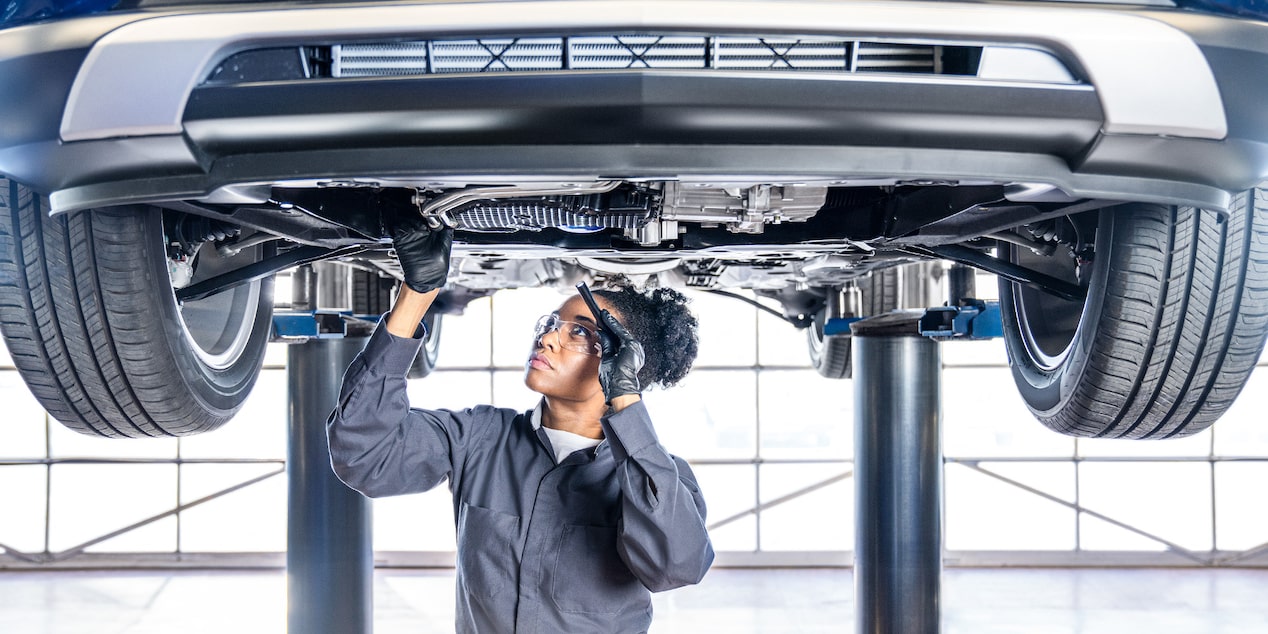All Categories
Featured
Brakes are arguably the most important safety and security feature of any type of vehicle. Without trusted brakes, even the most effective automobile can come to be a threat on the road.
- The Importance of Regular Brake Inspections. Brakes undergo constant damage with every use, whether you're driving at broadband on the highway or travelling through city roads. Gradually, brake pads, rotors, and other elements wear down, which can impact stopping efficiency. Without regular inspections, you may not observe the gradual reduction in efficiency up until it's far too late.
Regular brake inspections allow you to catch problems early, making certain that your brakes stay receptive, trustworthy, and risk-free. Prompt assessments can also save you cash by resolving minor problems prior to they end up being costly repairs.
- Common Indications That Your Brakes Required Attention. While regular brake evaluations are very important, there are some indication you can keep an eye out for to understand when it's time to arrange a check-up:
Squeaking or Grinding Appears: High-pitched squeaks or grinding sounds when applying the brakes are frequently indicators that your brake pads are broken and need replacement. Resonance or Pulsation: If you really feel vibrations in the steering wheel or the brake pedal, it could show warped rotors, which might need resurfacing or changing. Soft or Squishy Brake Pedal: If the brake pedal really feels abnormally soft or mushy, there may be air in the brake lines or a trouble with the master cyndrical tube. Pulling away: If your vehicle draws away while braking, this could be triggered by irregular brake pad wear or a concern with the brake fluid. Increased Stopping Range: If it takes longer to quit than typical, it might suggest that the brake pads are put on, the fluid is low, or the blades are harmed. If you see any one of these symptoms, it's best to have your brakes checked immediately.

- Secret Components Checked During Brake Inspections. Throughout a brake inspection, a service technician will examine several critical components of the stopping system to make sure whatever is working effectively. Below are the key elements involved:
Brake Pads: One of the most common reason for inadequate braking efficiency is worn-out brake pads. Checking the thickness of the pads is a concern throughout every evaluation. Brake Rotors: Blades ought to be smooth and devoid of grooves or cracks. Any type of considerable damages to the rotors might bring about compromised stopping performance and unequal pad wear. Brake Fluid: Low or infected brake liquid can hinder stopping efficiency. The specialist will certainly examine the fluid levels and top quality and change it if needed. Brake Lines and Tubes: Brake lines need to be without leakages or splits. Any kind of damage to the lines can lead to loss of brake fluid, bring about brake failure. Brake Calipers: The calipers use pressure to the brake pads. They should be evaluated for indications of wear or leaks to guarantee they are functioning correctly. On a regular basis checking these elements assists maintain your brake system in peak condition, enabling you to stop your cars and truck safely and effectively.
- Just how Frequently Should You Have Your Brakes Inspected? The basic recommendation is to have your brakes checked a minimum of yearly or every 12,000 miles, relying on your driving behaviors. Particular driving problems may call for more frequent inspections:
Heavy Website Traffic: If you usually drive in stop-and-go website traffic, your brake pads will certainly wear down faster. Mountain Driving: Driving on high roadways requires even more constant stopping, which can trigger your brakes to use faster. Towing or Hauling Heavy Loads: If you frequently carry hefty loads, your brakes will experience much more stress and anxiety and need even more frequent examinations. If you notice any one of the indication pointed out previously, don't await the following scheduled evaluation-- have your brakes checked quickly.
- The Effects of Disregarding Brake Inspections. Overlooking normal brake assessments can result in significant repercussions. A failing brake system might result in decreased stopping power, which boosts your threat of accidents. Neglecting brake upkeep can additionally cause more expensive repairs. For instance, if you delay changing used brake pads, the damages might encompass the blades, causing the requirement for blades substitute, which is a far more expensive repair.
In the worst situation, driving with damaged brakes can lead to complete brake failure, putting you and other motorists in jeopardy. Regular brake examinations are a tiny investment that can save your life and avoid costly repair services.
- Conclusion: Keep Safe with Routine Brake Inspections. Brakes are not something you want to take possibilities with. A trusted stopping system is crucial for risk-free driving, and regular brake evaluations are a simple way to ensure that your car stops when you require it most. By remaining on top of brake maintenance, looking for cautioning indications, and having your brakes examined at the suggested intervals, you'll safeguard both your car and your security.
Don't wait up until your brakes start to fall short-- routine regular brake examinations and maintain your lorry in optimum condition for many years to come.
Latest Posts
Extend the Life of Your Roof with Silicone Elastomeric Coatings
Enjoy Exclusive Savings with Montclare Auto Repair Discounts - Limited Time Offers!
Montana Fencing-- Your Partner for Yard, Ranch & Ranch Secure Fencing
More
Latest Posts
Extend the Life of Your Roof with Silicone Elastomeric Coatings
Enjoy Exclusive Savings with Montclare Auto Repair Discounts - Limited Time Offers!
Montana Fencing-- Your Partner for Yard, Ranch & Ranch Secure Fencing
